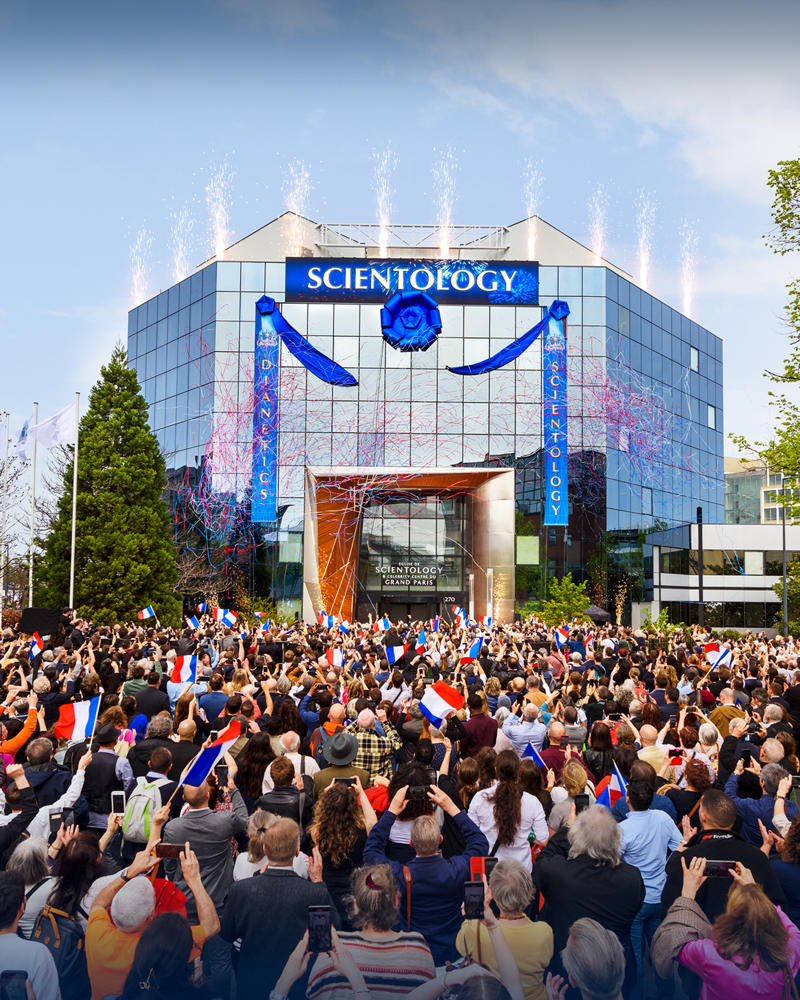Recognizing Scientology: A Comprehensive Overview to Its Beliefs and Practices
Recognizing Scientology: A Comprehensive Overview to Its Beliefs and Practices
Blog Article
Disproving Myths: Dividing Fact From Fiction Regarding Scientology

Origins of Scientology
The beginnings of Scientology trace back to the mid-20th century when L. Ron Hubbard, a sci-fi writer, established the idea system in the 1950s. Hubbard's development of Scientology originated from his earlier self-help system called Dianetics, which he presented in the 1940s - Scientology. The transition from Dianetics to Scientology noted a shift towards an extra extensive spiritual approach that incorporated aspects of psychology, Eastern spiritual traditions, and Hubbard's very own theories on human presence
Hubbard's exploration right into the human mind and spirit resulted in the production of Scientology as a religion focused around the principle of spiritual knowledge and self-improvement via a procedure called bookkeeping. Bookkeeping, a kind of spiritual therapy, aims to assist people get rid of emotional and mental barriers, called engrams, that impede individual growth and recognition.
As Hubbard's teachings obtained appeal, Scientology progressed into a global activity with a considerable following. Regardless of disputes and criticisms bordering its techniques and beliefs, Scientology remains to draw in followers looking for spiritual fulfillment and individual development.
Core Ideas and Practices

Another essential aspect of Scientology is the principle of the Thetan, the spiritual essence of a person that transcends the physique. Followers aim to understand and reinforce their link to the Thetan via different techniques such as research study training courses and filtration rituals.
The Church of Scientology also puts a solid emphasis on the importance of individual duty and the idea that people have the power to form their very own fates. Via adherence to honest standards and the search of self-improvement, specialists of Scientology strive to attain greater levels of joy, success, and spiritual gratification.
Objections and debates
In the middle of Scientology's core beliefs and practices exists a landscape noted by controversies and find here objections that have actually triggered extreme debate and analysis. In addition, Scientology's standing as a tax-exempt religious company in some nations has been a point of opinion, with critics arguing that its methods are extra akin to a business than a faith.
Another location of conflict surrounds the Church's therapy of critics and dissenters. Records have arised of harassment, scare tactics, and legal risks routed at those who talk out against Scientology. This has actually increased issues concerning freedom of speech and the company's commitment to transparency and accountability.
While Scientology has vehemently rejected most of these claims, the Full Article objections and controversies surrounding the Church proceed to fuel public hesitation and scrutiny.
Scientology's Impact in Society
With its visibility in different industries of culture, Scientology's influence can be observed in both subtle and overt means, forming perceptions and communications. In the realm of education, the Church of Scientology has encountered examination for its initiatives to introduce its mentors right into schools with programs like "Applied Scholastics." Critics argue that such efforts blur the lines in between church and state, possibly impacting the instructional experiences of pupils. Furthermore, Scientology's influence reaches the world of mental health, where its sights on psychiatry and psychology have actually triggered discussions within the clinical neighborhood. The church's anti-psychiatry stance has actually caused skepticism and concerns pertaining to the efficacy of mental wellness therapies. In the realm of enjoyment, Scientology's organization with top-level celebs has actually accentuated the religious beliefs, both positively and negatively. The involvement of renowned numbers in Scientology has, sometimes, offered to promote the religion, while in others, it has actually drawn objection and raised inquiries about the church's methods and ideas.
Debunking Common Misconceptions
What misconceptions concerning Scientology are frequently held see this page and how can they be unmasked? One usual misconception concerning Scientology is that it is a cult. Nevertheless, the Church of Scientology is legitimately recognized as a faith in many countries, including the United States, where it has tax-exempt status. Like various other faiths, Scientology provides spiritual support and practices for its members.
An additional misunderstanding is that Scientology compels its participants to cut connections with their households. In truth, the church emphasizes the value of family members partnerships and encourages members to maintain healthy links with their liked ones.

Verdict
Finally, it is vital to separate reality from fiction when going over Scientology. By analyzing its beginnings, core beliefs, disputes, and influence in society, we can expose common misunderstandings bordering this faith. It is important to approach the subject with a objective and vital way of thinking in order to comprehend Scientology properly and without predisposition.
Rooted in a structure of spiritual enlightenment and individual growth, Scientology's core beliefs and techniques incorporate a diverse variety of principles and rituals. Central to Scientology is the belief that people are never-ceasing spiritual beings who have neglected their true nature. The participation of well-known figures in Scientology has, in some cases, served to promote the religious beliefs, while in others, it has drawn criticism and increased inquiries concerning the church's methods and beliefs.
The Church of Scientology is lawfully identified as a religion in several countries, including the United States, where it has tax-exempt status. Like other faiths, Scientology supplies spiritual advice and methods for its members.
Report this page